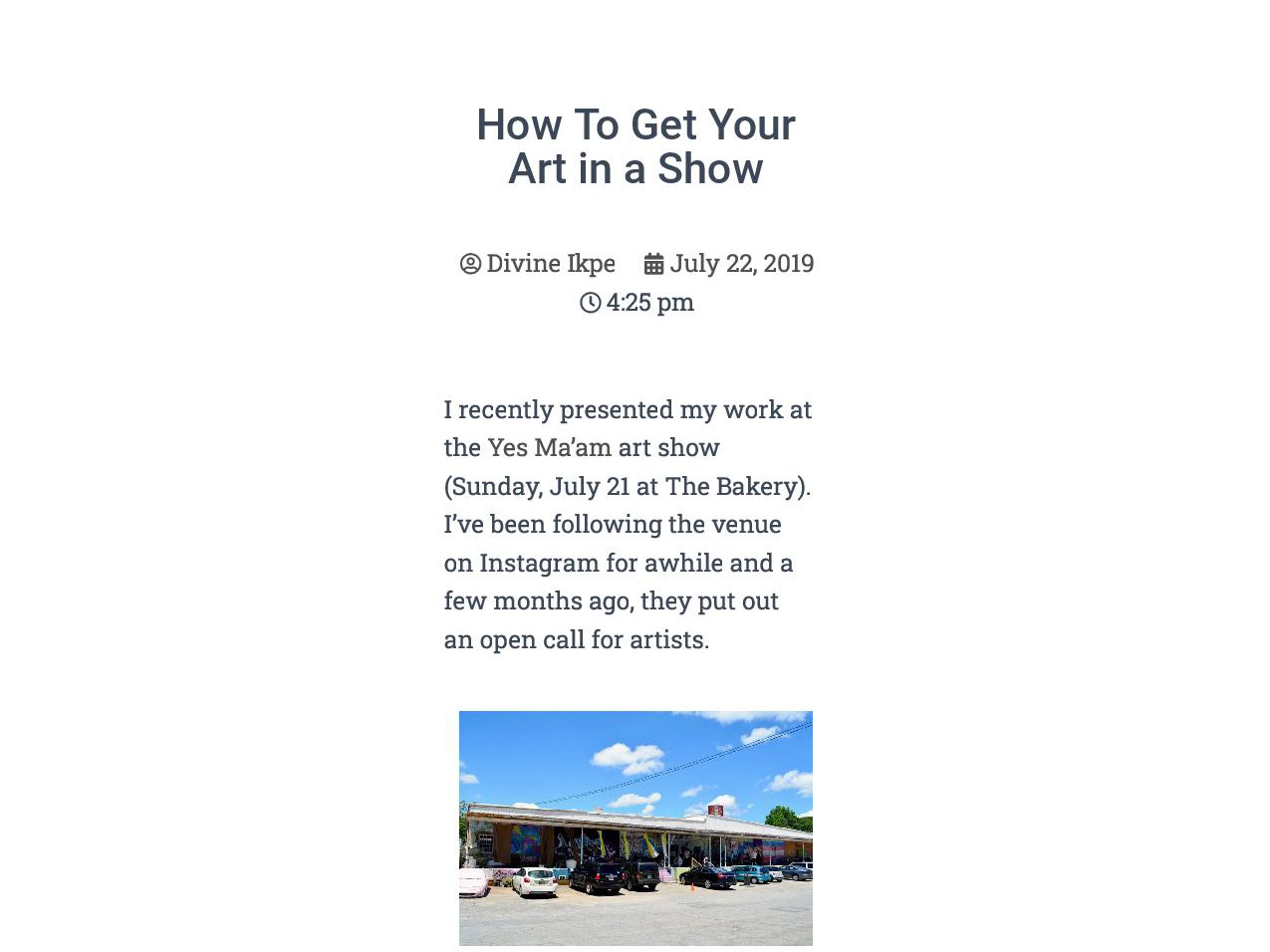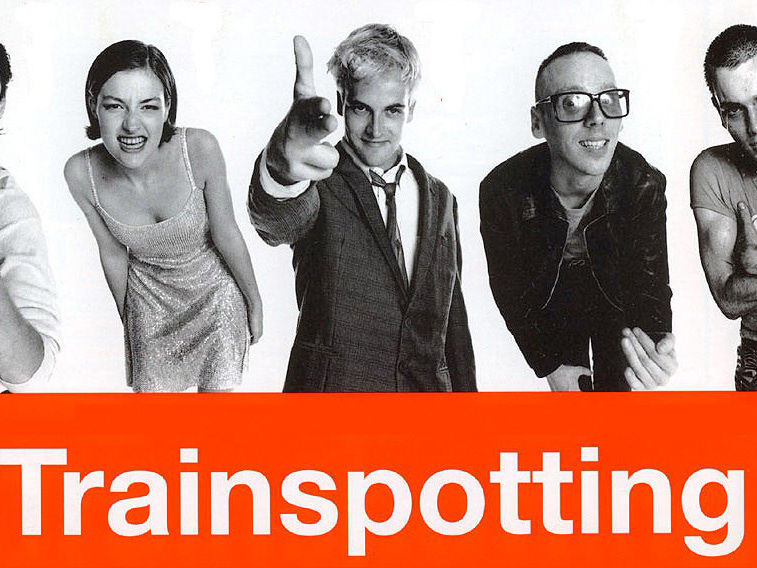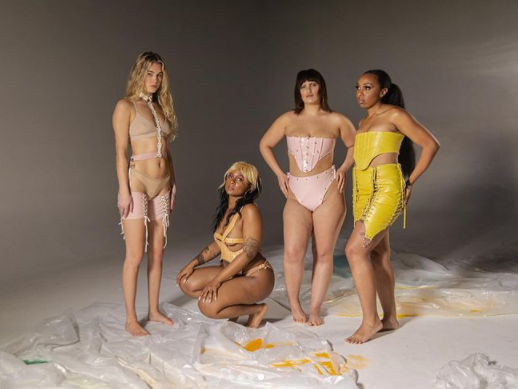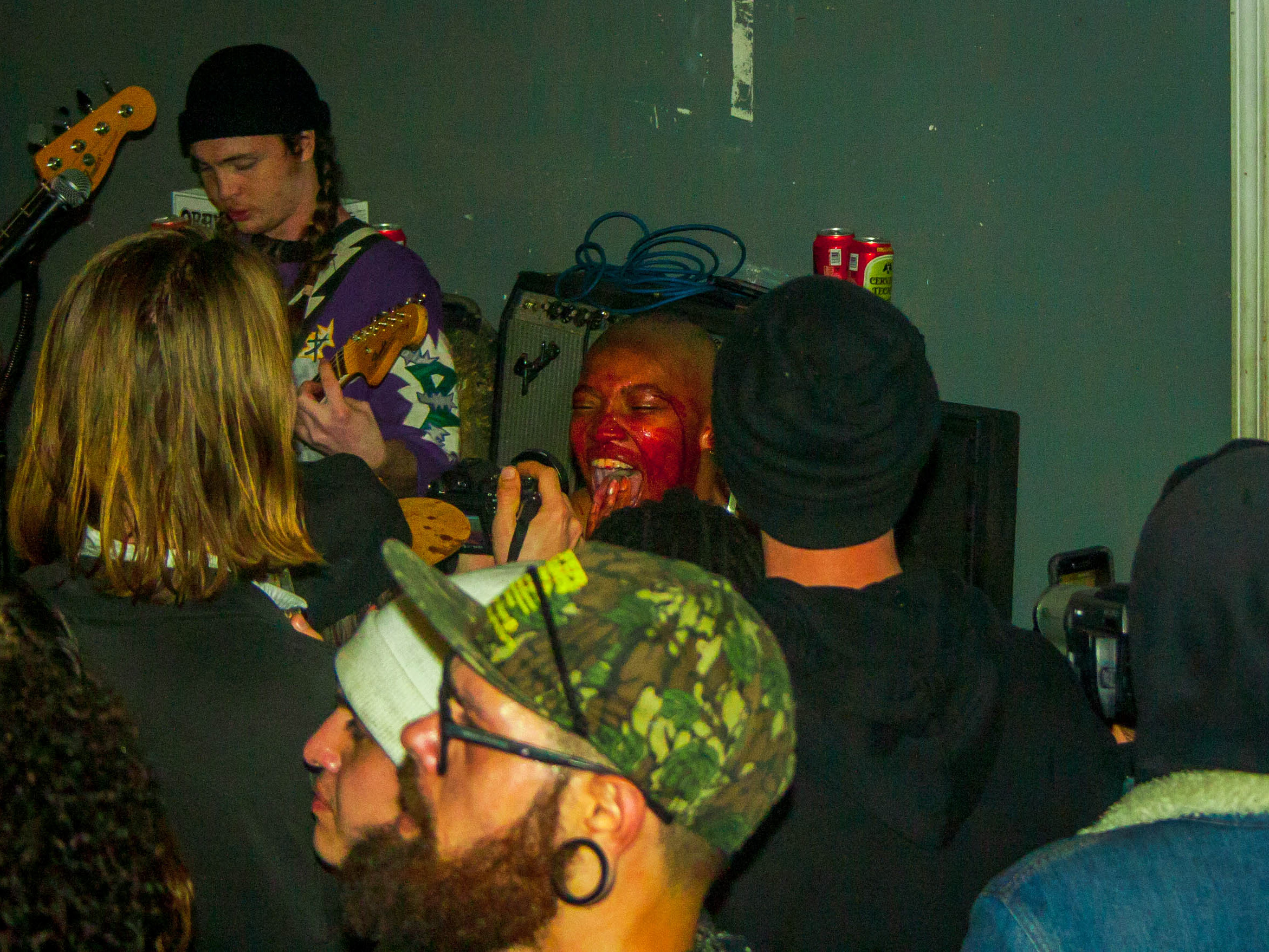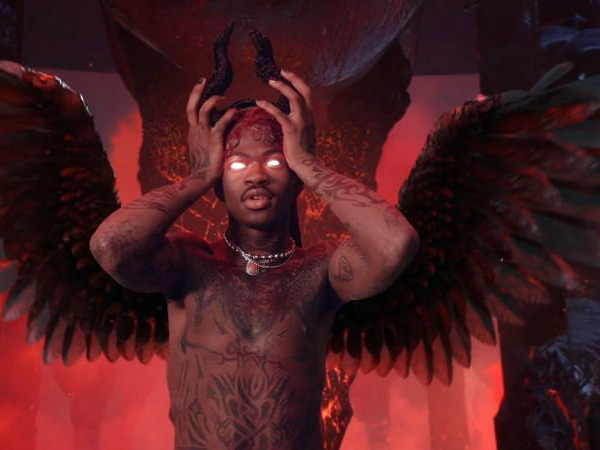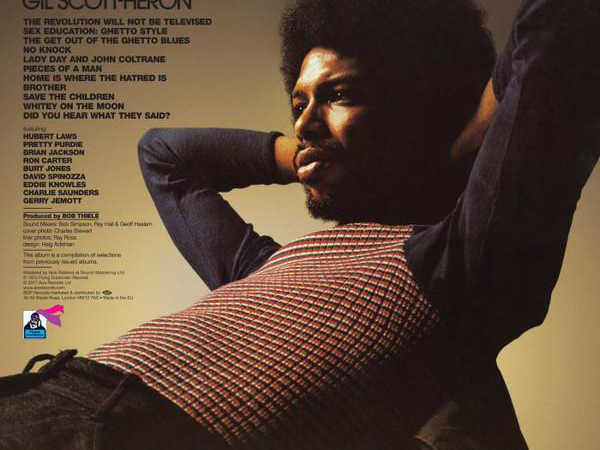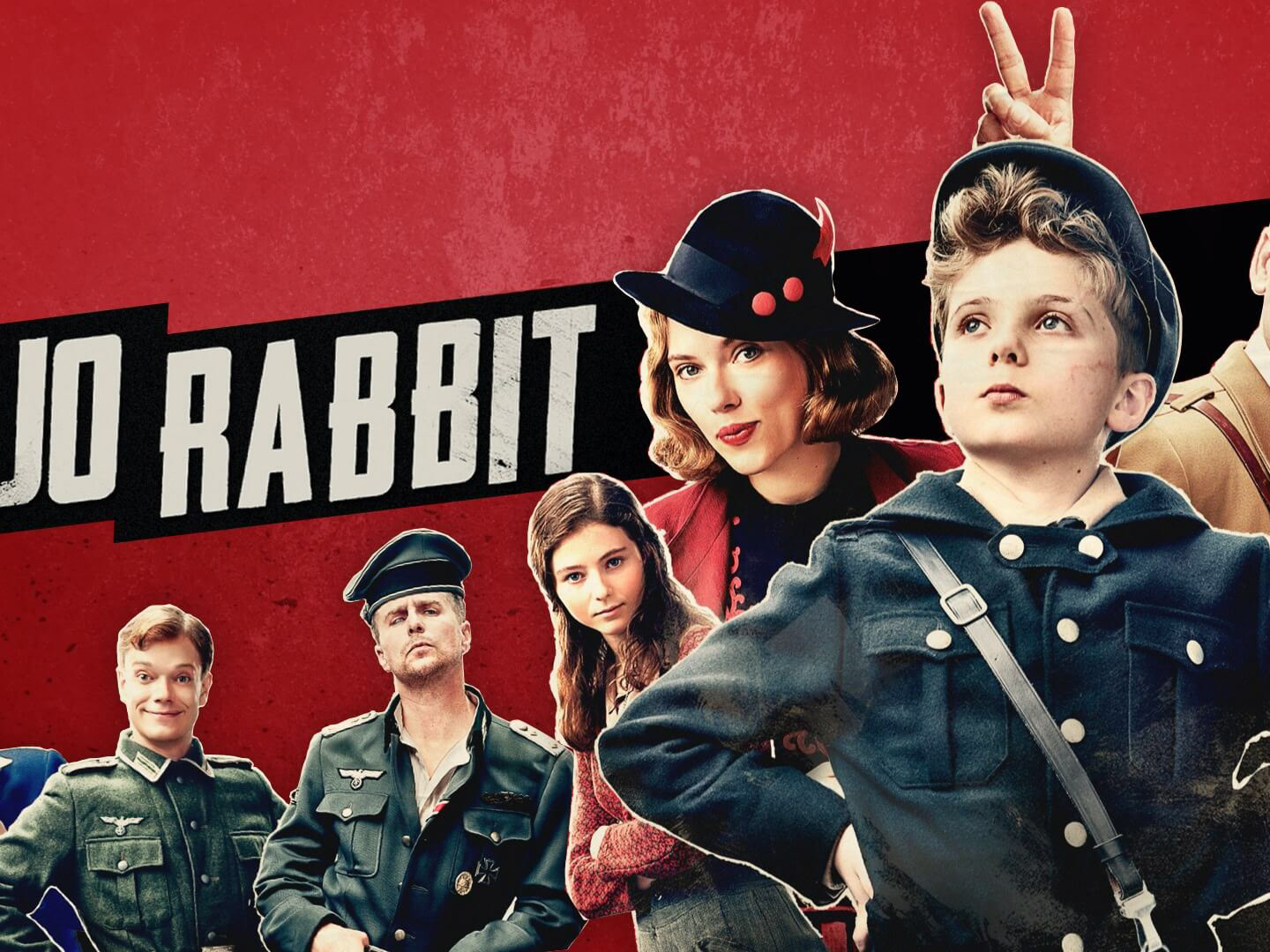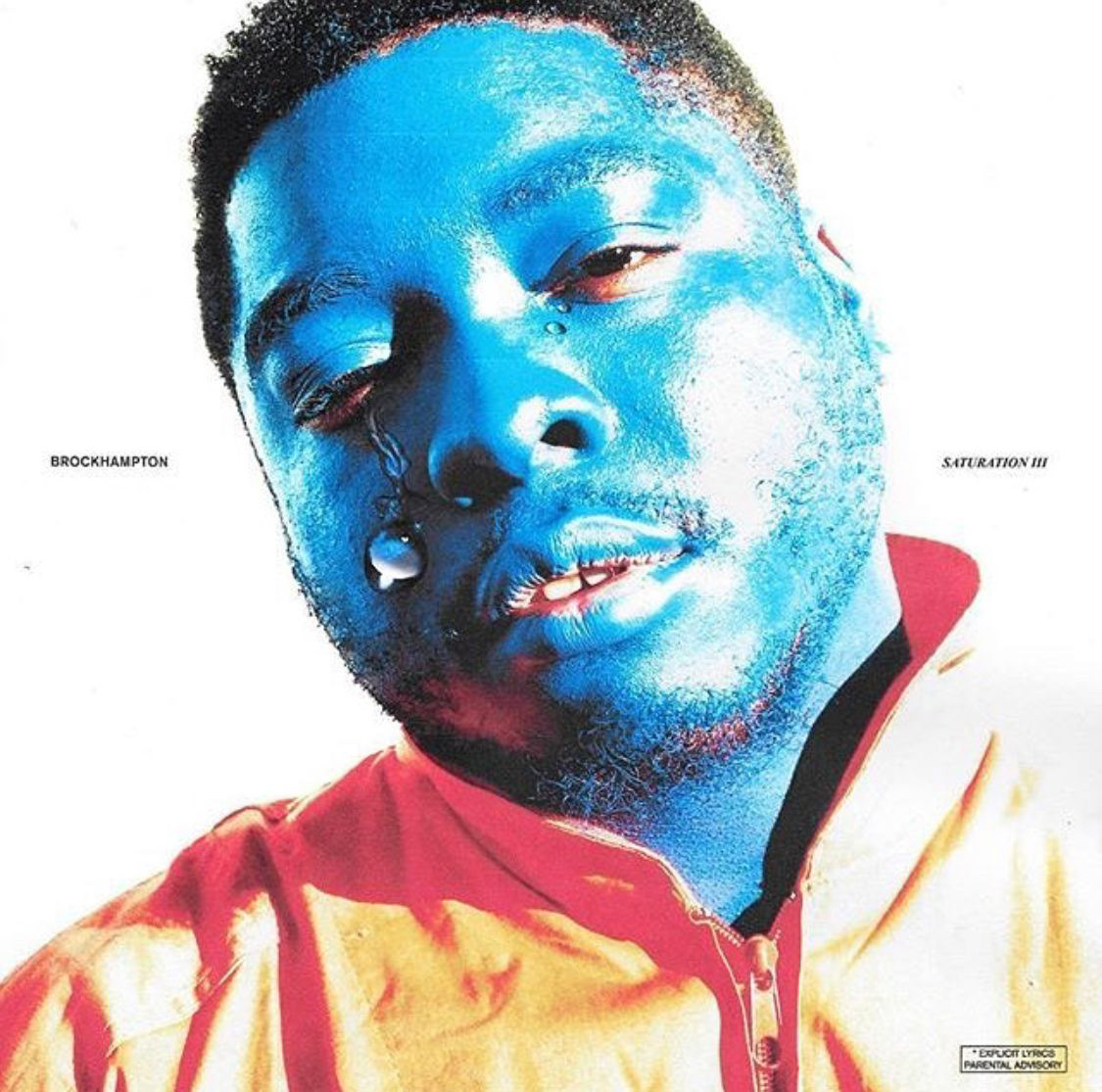
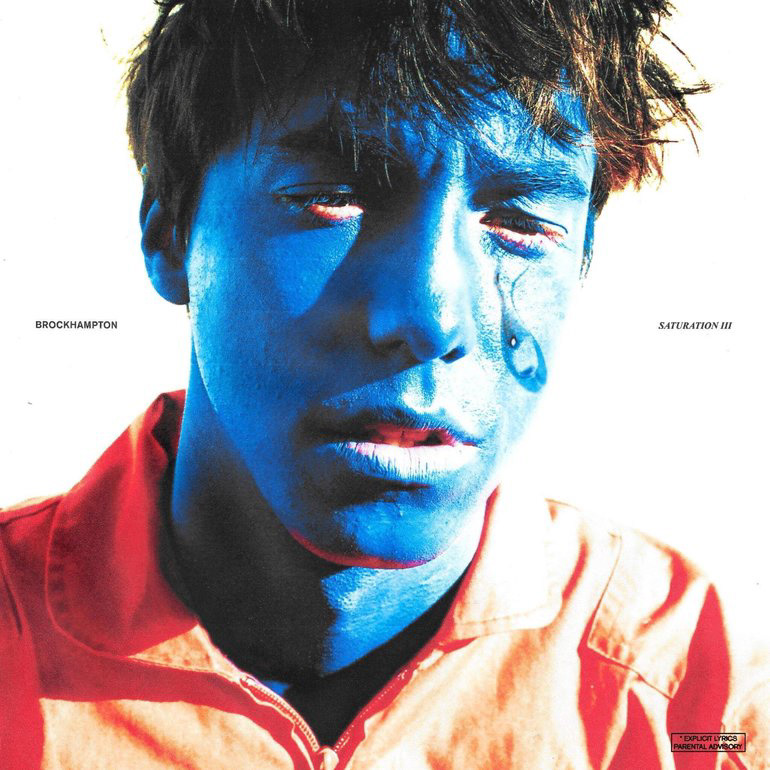
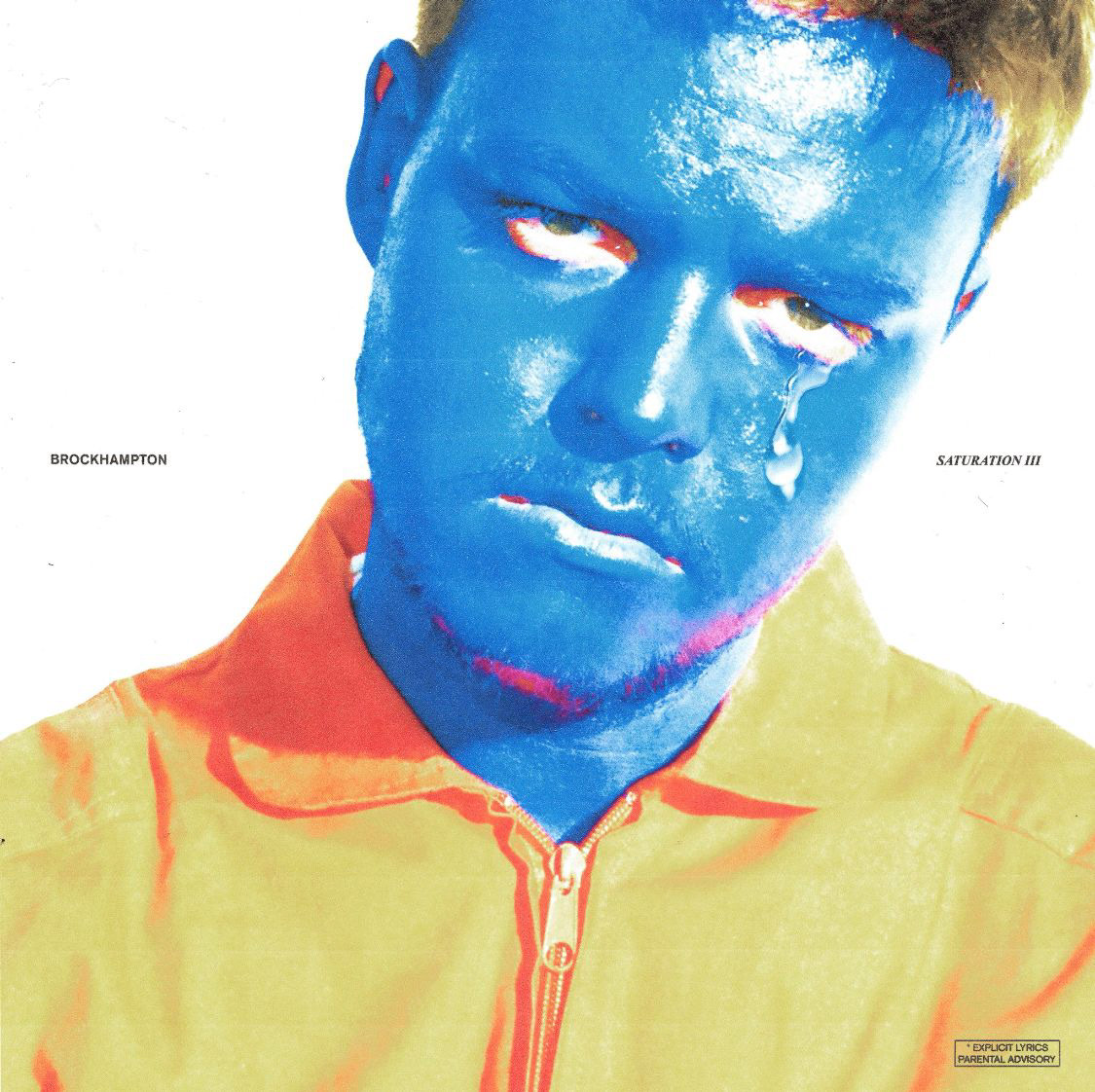
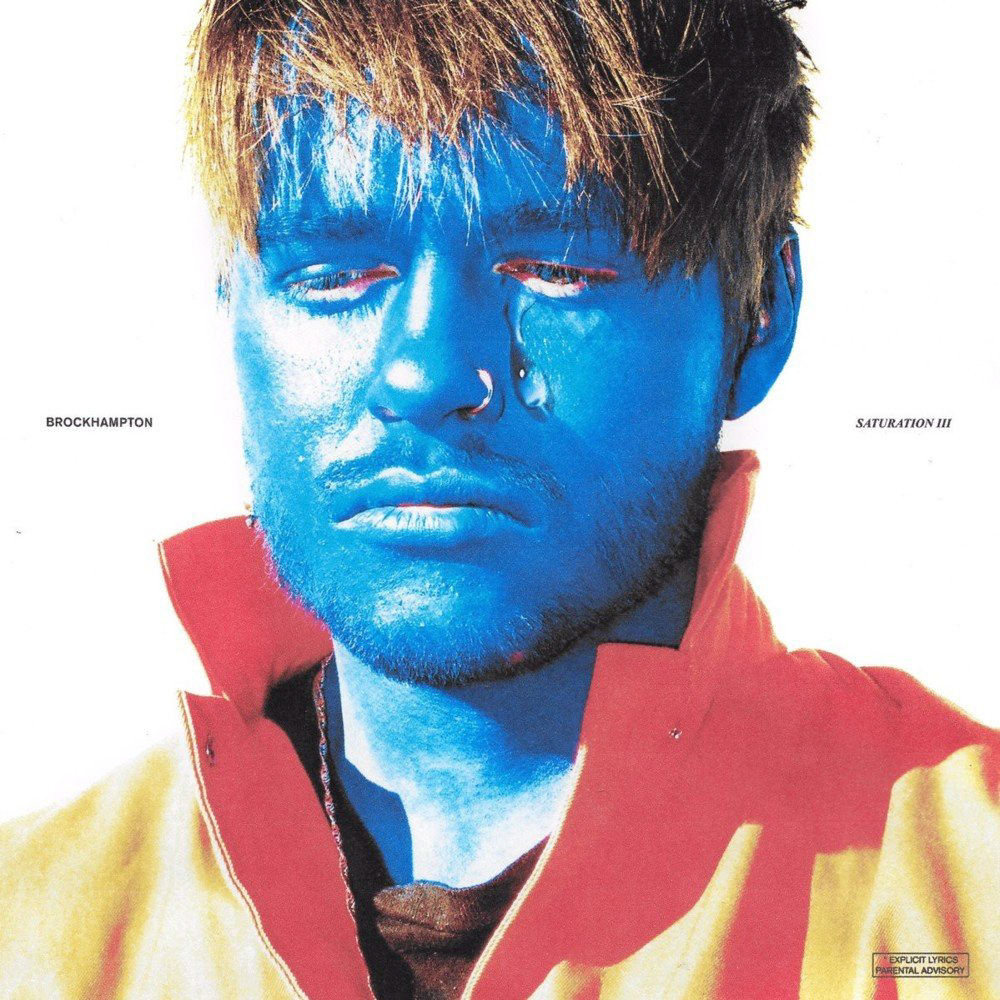
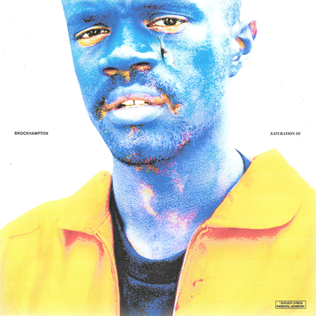
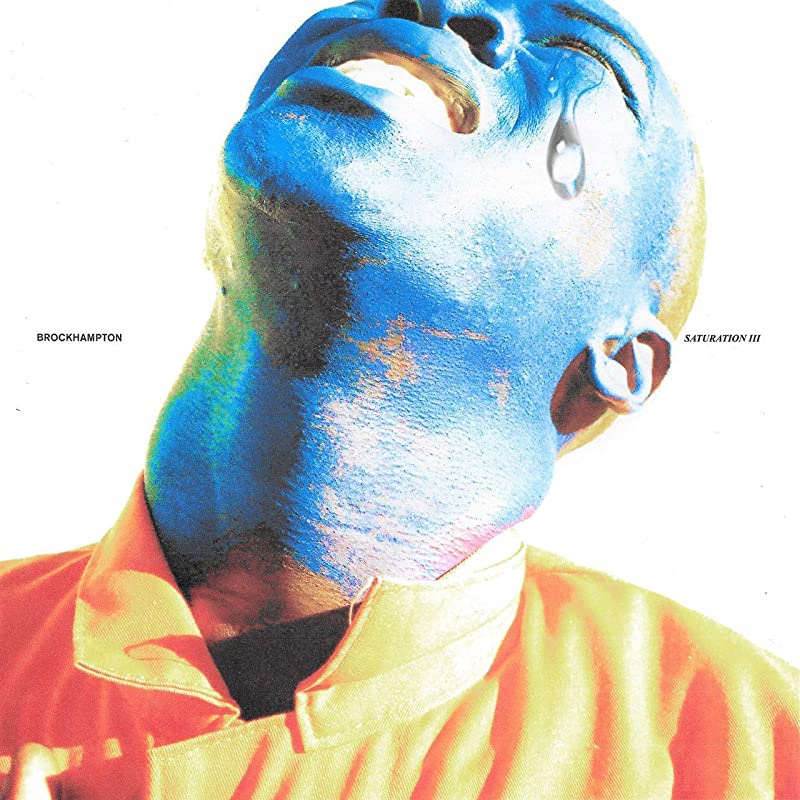
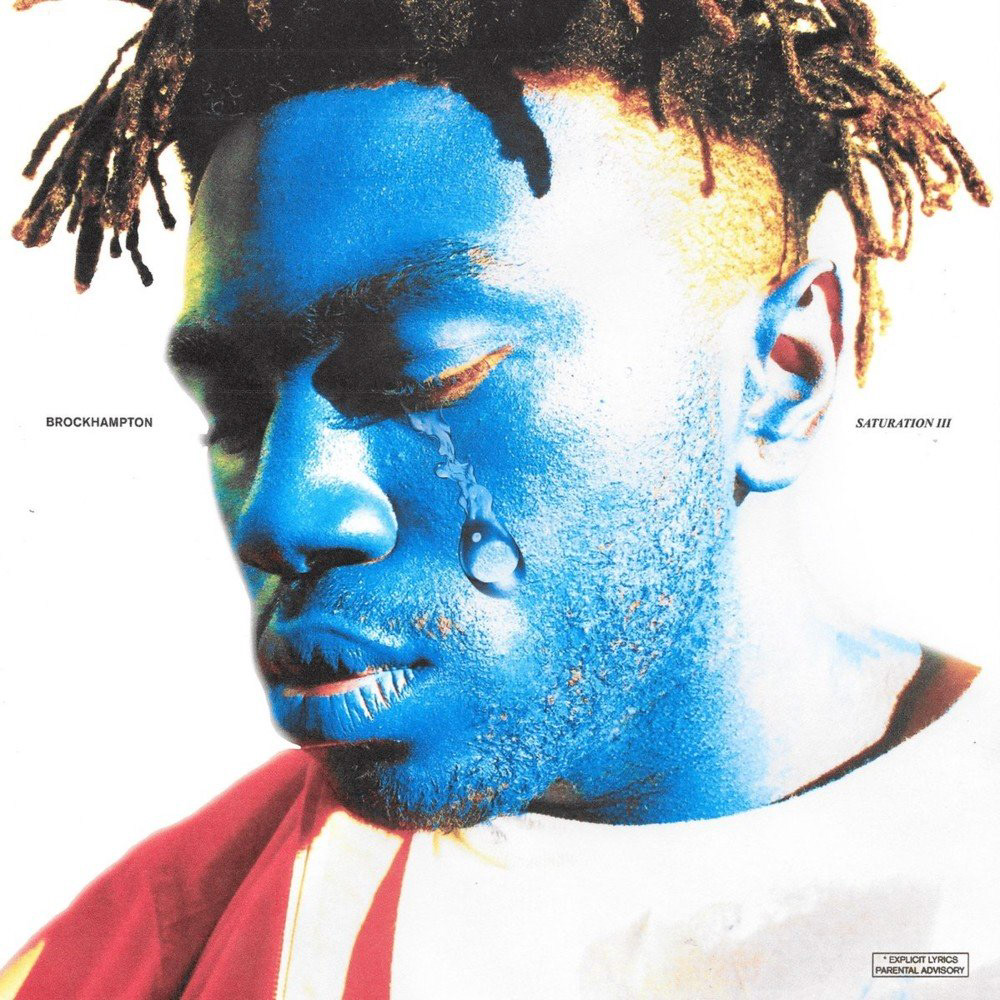
The song “Sister/Nation” by the group Brockhampton is an exemplary piece regarding the contemporary time period. This song was released within their studio album “Saturation III” which was the finale of their Saturation trilogy. They released three albums last year in an attempt to emphasize the amount of saturation within the current music industry. Saturation III was the most emotional out of the three albums; this song specifically has the most emotional and introspective layers to it compared to the rest of the songs in my opinion. It showcases the internal struggles that the majority of the main members have dealt with in their lives.
It starts off with a dark synth and one of the members, Merlin Wood, basically stating how he and the rest of the group are different from other artists in the industry and that they are/will remain to be unapologetically themselves regardless of what the blogs and music critics say. This concept of individuality is a major trait in contemporary culture, where everyone is encouraged to be themselves despite what other people may think of them.
Next, Joba describes his struggle with mental illness, most likely Dissociative Identity Disorder or another personality disorder stating:
“...that's why I'm pure to some, a psychopath to others...they gave me mood stabilizers but when I came off 'em, I was violent. Took the drugs that I wanted which didn't help with the voices; they just grew louder and louder...I juggle all my personalities”
This quote along with the continuous menacing synth in the background are a literal physical embodiment of the mania concept in contemporary culture; he raps/sings this verse in various tones, both deep and high, in order to emulate the constant “voices” and multiple personalities within his head. Then Robert enters the song with a short verse in spanish describing how tired he is with life and living in general, but how he has to remain strong for his family and friends. This could be viewed as a look inside of his subconscious, revealing one of his innermost scuffles against his will to live and his love for others.
Suddenly the beat pauses and fast-paced percussion is layered on top of the synth. Then Kevin Abstract enters the song. He explores various topics, one of the most obvious and relevant ones is the idea of self-discovery when he says, “Kiss your kids tonight before them bitches run away.” This line refers to his personal life, he ran away from home when we was around 17/18 years old due to his parents no longer accepting him once he came out to them as gay. It suggests the message that parents should love and accept their children for who they are or else they will leave their parents behind while on the journey to discovering who they truly are. In the same verse he also says, “Got some D's, dropped out, wanted to be Russell Simmons/Gotta keep workin', my head or in a vision”; in this quote he explores the idea of innovation by stating that despite his average to sub-par grades in school, dropping out, and running away from home, he still managed to become successful due to his undying devotion and commitment to his goal.
The instrumental changes once again, changing to a lighter synth with a drum and bass type percussion, somewhat in the style of a break-beat. Then the music sporadically changes again, to a mid-toned bass and slower drum beat. Throughout these changes, Kevin continues with the subject of innovation, making something from nothing, being who you want to be.
Next, the instrumental goes back to the original dark synth with the fast-paced percussion. Then Matt Champion slides in with a verse condemning the artificiality of today’s society while also reinstating Kevin’s theme of individuality and innovation stating:
“ Take a risk...still sittin' on your ass, waitin' for a handout… ‘ooh, yeah, this for the culture!’...fuck off with that slang shit; fuck off with that networking; keep ya mouth where the money at”
You can clearly see how irritated he is by some aspects of contemporary culture, how people get famous off of doing nothing, how people use technology in order to network with people for the sole purpose of gaining “clout”, presteege, followers, but not to actually help one another out; it’s all about self-interest yet little to no effort.
The music changes once again to yet another synth, this time a slower, calmer one as Dom McLennon enters with his verse. His verse, like Kevin’s, focuses on self-discovery/exploration of identity and subconscious thoughts like Robert’s verse. He says:
“Yellow lights on my dashboard, red flags in the rearview; I know I'm the one that made you upset, but all I wanna do is heal you. You know that lately I don't think straight, but lately I don't know what to do now; ‘Cause everybody got me fucked up, I'm struggling while on the move now.”
You can see that he’s dealing with internal conflict, thinking about the mistake of the past and how they relate to where he is now; he regrets some of the decisions he made, but they all helped him to discover who he truly is. The song then returns to the light synth with the drum and bass percussion with part of Kevin’s earlier verse repeated. Then there is a long electronic buzz for a few seconds signaling the change from part 1 (Sister) to part 2 (Nation).
The instrumental is significantly slower, showing a stark contrast to the chaos and mania in the first part of the song. This section focuses more on the lack of egalitarianism in contemporary America despite the pluralism within it. One example of this is Ameer Vann’s verse where he describes the difficult transition from going to school near where he lived, in the poor part of town, to being transferred over to a school in the suburbs:
“ I hate them quiet suburbs, I hate those picket fences. I hate the separation, first thing they called me "nigga." I fight, I got suspended, my teachers saw me hit him, so they ain't listen to me, and from that moment on I would learn that I was different, I would grow to see the difference, second guessing my decisions, black bodies come up missing”
In those specific suburbs where there was a primarily white population and little to no diversity, they greatly lacked the alleged American/contemporary value of egalitarianism by discriminating against him purely based on his skin tone and different socioeconomic background. Kevin then sings, “I feel like all my days are coming to rubble,” once again exemplifying the period trait of introspection.
Next Dom revisits Ameers theme with a powerful verse questioning what life would be like if race didn’t exist, if people didn’t treat him differently just because they looked different. He questions if going through all of the race related hardships were even worth it, and then proceeds to describe how black people are viewed in society. He states all of these in a beautifully thought out verse:
“Wonder how the world would be if I had no face, If I had no heart, if I had no skin and I was just thoughts, reminiscing, the things always brushed off...and when I look at the things that I've been through, and the things I survived and at what cost?...In the eyes of the law, I'm a problem”
He then goes on to describe the hypocrisy, artificiality, and consumerism of contemporary society as well; all of his introspective thoughts finding the light of day. All of his experiences made him the man he is today, and although the verse seems moderately pessimistic, I think all of those negative experiences helped him discover his identity and ultimately had a positive result. Lastly, Merlin and Kevin finish off the song; Kevin sings the chorus again while Merlin repeats “ Power, African power,” which is a prideful chant suggesting that despite all of their hardships, at the end of the day they are proud of their African heritage, and proud to be an African American.
Overall not only does the song scream equality and diversity/pluralism, the group itself does as well; with Merlin, Kevin, Dom, and Ameer being black, Joba and Matt being white, and Robert being Hispanic, there are various cultures and ethnicities within the collective, it’s no wonder why they call themselves an “All-American Boyband.” Their unity shows that despite the lack of equality in society, it is possible to have a cohesive egalitarian environment where everyone is free to be who they truly are, regardless of race, sexual preference, or mental illness.
Works Cited
Brockhampton. “Sister/Nation”. Saturation III, QUESTION EVERYTHING, INC. / EMPIRE,
December 15, 2017. Digital Studio Album.
